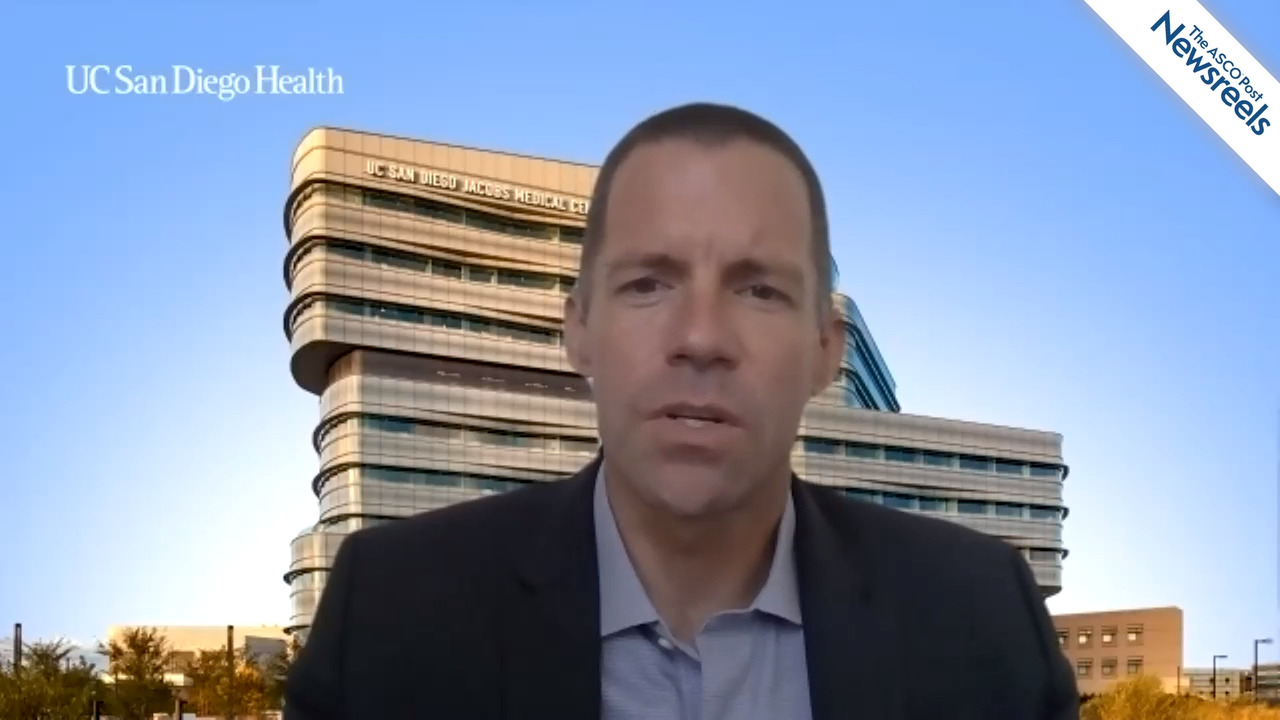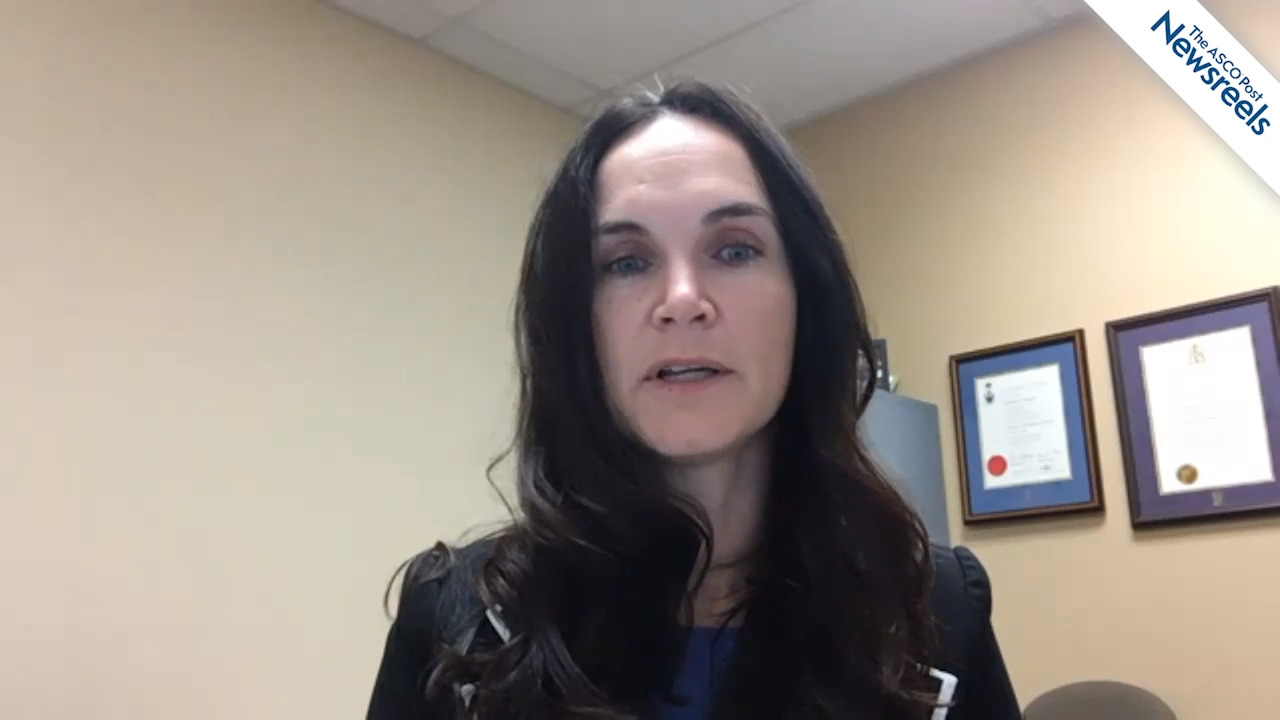Melissa K. Accordino, MD, on Breast Cancer Care Delivery: Impact of the COVID-19 Pandemic
2020 ASCO Quality Care Symposium
Melissa K. Accordino, MD, of Columbia University Medical Center, discusses findings showing nearly half of the patients with breast cancer treated at an academic center in New York City experienced a change or delay in their workup or treatment during the COVID-19 pandemic. Race and socioeconomic factors played a significant role (Abstract 88).
The ASCO Post Staff
Veena Shankaran, MD, of the Seattle Cancer Care Alliance, discusses study findings from a national sample of patients with metastatic colorectal cancer who are on systemic therapy. A year into their treatment, nearly three out of four patients had major financial hardships despite access to health insurance coverage (Abstract 137).
The ASCO Post Staff
Joseph M. Unger, PhD, of Fred Hutchinson Cancer Research Center, discusses study results showing that more than half of all patients with cancer, regardless of race or ethnicity, agree to take part in clinical trials, a finding that upends conventional beliefs. He talks about removing the barriers to help more patients participate (Abstract 92).
The ASCO Post Staff
James D. Murphy, MD, of the University of California, San Diego, discusses the possible reasons for a decline in long-term opioid use in patients with cancer, even as short-term use is rising, as well as the racial and socioeconomic disparities of opioid use in this population (Abstract 187).
The ASCO Post Staff
Cardinale B. Smith, MD, PhD, of the Icahn School of Medicine at Mount Sinai, discusses results of a pilot study suggesting dedicated lay staff members, who facilitated admissions and discharges for patients with cancer across care settings, could improve health-care utilization, quality, and the patient experience (Abstract 6).
The ASCO Post Staff
Katherine Enright, MD, MPH, of Trillium Health Partners in Ontario, discusses a model of quality improvement, which potentially could be adapted across health systems to improve oral systemic cancer care (Abstract 184).





